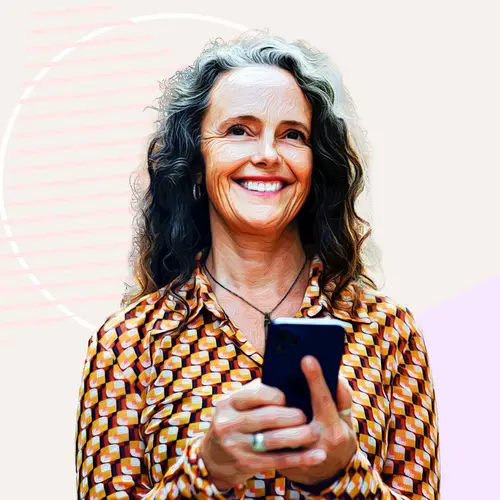By Hayley Krischer
Everyone has that New Age-y person in their life who makes existential statements like, “If you don' t know yourself, you're not living." Or, "If you don't know yourself, you can't live your truth." And you’re always like, "I do know myself. I know I want a dirty martini extra olives, and I want one now." Then you get home and you ask yourself, "Why have I had three bad breakups in a year?" Or, "Why have I been so unhappy lately?" Or, "Why do I keep spending endless amounts of money on video games?"
What is it about getting to know yourself better that makes you feel so resistant and uncomfortable? See if you relate to some of these excuses:
But... I already know myself pretty well already. “We’re always changing, evolving and adapting to new life circumstances, so I don't know if you can ever completely know yourself,” says Amy Przeworski, Ph.D., a psychology professor at Case Western Reserve University in Cleveland, Ohio. Who you are now has everything to do with your past experiences, and that’s why taking a closer look at yourself is an ongoing process. “If you don't make those links, then you don't truly know yourself,” Przeworski says.
But... navel-gazing is selfish and egotistical. OK, it is slightly self-involved, says New York-based counseling psychologist Richard Orbe-Austin, Ph.D. -- but it’s also crucial to understand that you can’t help others until you help yourself first. If you think about it that way, then self-discovery isn't selfish whatsoever. "It’s easy to project on to others," he says, "and it’s easy for us to make suggestions to other people. It’s a lot more difficult to think about how we can do that for ourselves."
But... I’m afraid of what I might find. “We often tuck our emotions deep down and try to avoid them -- especially the vulnerable emotions, such as fear and sadness,” says Przeworski. But that doesn’t mean you can just decide those feelings don’t exist. "Vulnerability is what forms human connections," she says. "Getting to know your own vulnerabilities -- and being able to share them with others -- is how you form meaningful relationships.”
But... it makes you self-absorbed. “It can be self absorbing if all you do is talk about yourself,” says Orbe-Austin. But the real aim of self-change (and therapy, for that matter) is to address something that you’re less than thrilled with, right? Instead of thinking of it as narcissism, think of it as self-honesty.
But... all of that self-help stuff is so woo-woo. Fine, we’ll give you this one. "Getting to know yourself" sounds weird and self-help-y. But it’s a part of the human process that’s ever-evolving. "Just as you may learn new things about your spouse even after you've been with the person for 20 years," says Przeworski, "you can learn new things about yourself when you experience a major new life event, take on a different role, or even find yourself making a new decision. Knowing yourself is a destination that will forever be slightly outside of your grasp."
But... that kind of thing makes me too uncomfortable. The idea of self-change can be a frightening concept. But sit with the issue for a bit, as uncomfortable as it might seem. Assess where you are today, and imagine ways you can change it. “The cost of changing doesn’t outweigh the emotional benefit,” says Orbe-Austin. Self-reflection can make you a major player when it comes to positive change.
But... I don’t have time for this sort of thing. We’re all overscheduled and overwhelmed with responsibilities, observes Przeworski. “Life has meaning when you set aside time to truly experience it emotionally, and to be present in each of your experiences,” she says. To do so, you need to dig down deep and get to know the person you are.
